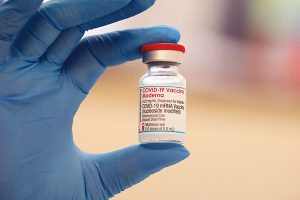Long Covid is making it hard for millions of Americans to return to normal life, pushing some out of the workforce altogether, sometimes permanently. Yet medical efforts to figure out how best to help these patients are proceeding only slowly.
Research has zeroed in on a few probable causes of long Covid, perhaps the most intriguing of which is the idea that the coronavirus sometimes lingers in the body undetected for months after an initial infection. The theories should not be difficult to investigate, and the National Institutes of Health has $1.2 billion to spend on the work. But it’s not moving fast enough.
The slow-footed response to long Covid is often attributed to the nebulous nature of the problem. Symptoms are so numerous as to seem almost random. One large UK study counted as many as 200 distinct health effects across 10 different organs. Duration varies, too; for some patients, the symptoms last only a month or two, while others seem to never fully recover. Even estimates of how many people suffer vary widely.
The US Government Accountability Office pegs
the long-Covid population at anywhere from 7.7 million to 23 million. The Centers for Disease Control and Prevention finds that one in five Americans has experienced post-infection symptoms.
Categorising all these cases based on their underlying biology will take time. And it will remain difficult to distinguish long Covid from other conditions.
But researchers can make progress towards helping patients before they have nailed down a neat and tidy explanation for the condition. Already, scientists have several good hypotheses about how to treat the problem, and ideas for preventing it in the first place. And some of these theories can be tested, even without inventing new drugs.
Consider, for example, the theory that persistent lurking virus poses problems, for example, by prompting the immune system to react.
A growing body of research offers support to this theory. In one recent study of blood samples taken from people with long Covid, researchers detected coronavirus spike proteins over the course of several months in 60% of patients. In some of them, the bits of virus could be measured for as far out as a year. Because humans have enzymes that quickly chew up the spike protein in the bloodstream, finding protein pieces over time points to some kind of viral reservoir, says David R Walt, the Harvard professor who led the research.
This study has yet to undergo peer review, but Walt, who was the
scientific founder of the gene-sequencing company Illumina, says it has generated more initial interest than any paper he’s put out in his career.
The enthusiasm is helping his team access blood samples that have been collected over longer periods of time, with more comprehensive patient data, for further analysis using a highly sensitive test his lab developed.
The early findings are consistent with other work that has found the virus in the gut in people with at least one symptom of long Covid.
—Bloomberg
 The Gulf Time Newspaper One of the finest business newspapers in the UAE brought to you by our professional writers and editors.
The Gulf Time Newspaper One of the finest business newspapers in the UAE brought to you by our professional writers and editors.
